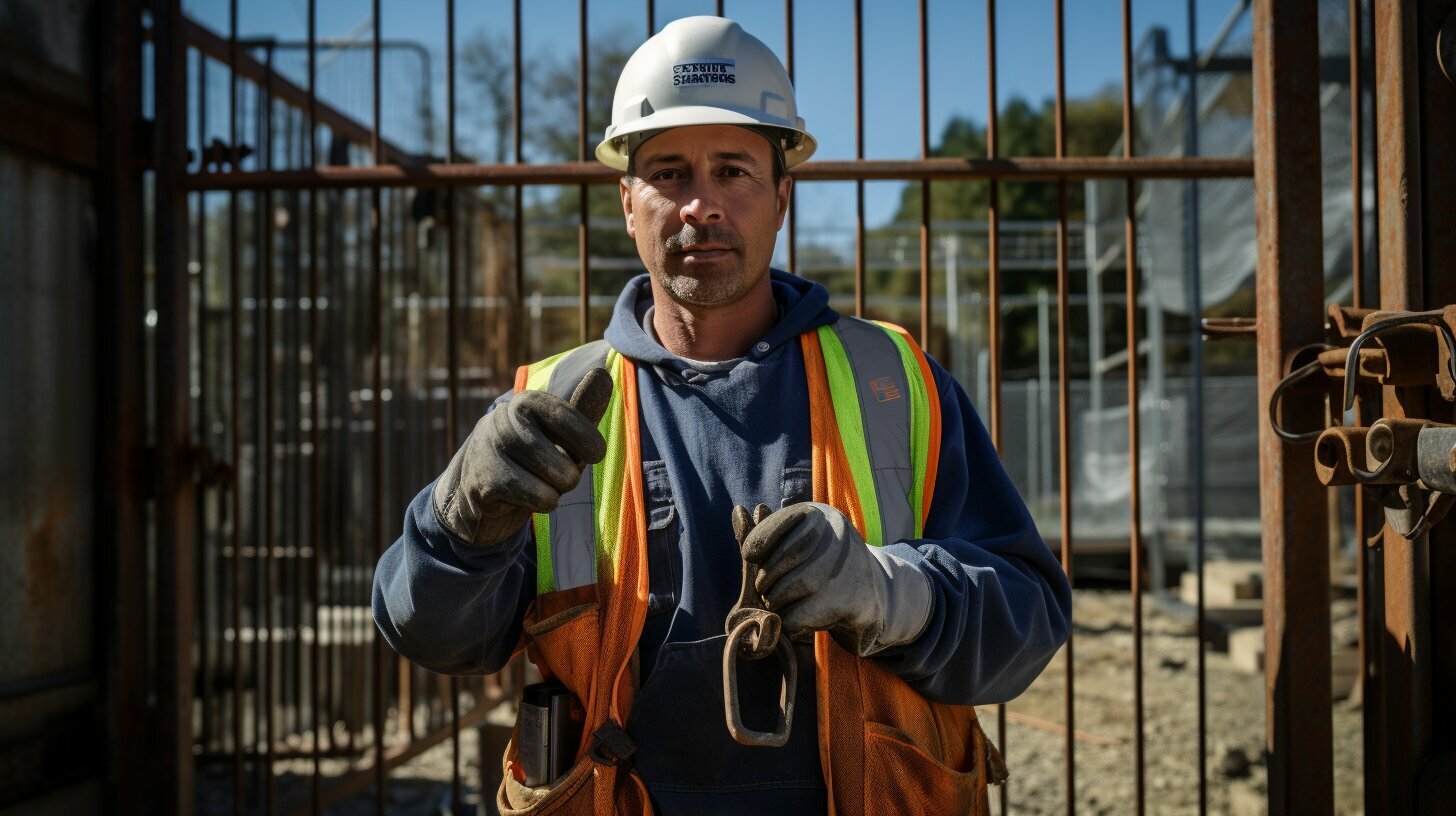
General contractors play a crucial role in the construction industry, but understanding how they get paid is essential for their success. From payment methods to payment terms and the overall payment process, it’s important for contractors to navigate these aspects effectively.
When it comes to payment methods, general contractors have various options. They can opt for fixed-price contracts where the total cost is agreed upon upfront. Alternatively, they can choose unit price contracts, where the price is determined based on specific units of work. Cost-plus contracts allow for reimbursement of expenses incurred, along with a predetermined profit margin. Lastly, time and materials contracts involve payment based on the time spent and the materials used.
In addition to the payment methods, contractors should also consider the payment terms. These terms outline when and how payments are made throughout the project. It’s essential for contractors to have a clear understanding of the payment schedule, including milestones or completion stages that trigger payments.
Creating accurate estimates is another crucial aspect for general contractors. Estimating the costs involved in a project, including labor, materials, overhead expenses, and profit margins, ensures that contractors can provide accurate quotes to clients. It also helps in managing project finances effectively.
Payment protection laws are also a vital consideration for general contractors. Understanding mechanics lien statutes and other legal recourse options is crucial to ensure prompt and fair payment. Contractors need to be familiar with the requirements they need to fulfill to secure their compensation in case of non-payment.
Key Takeaways:
- General contractors have various payment methods to choose from, including fixed-price contracts, unit price contracts, cost-plus contracts, and time and materials contracts.
- Payment terms, such as the payment schedule, milestones, and completion stages, are important to clarify when and how payments will be made.
- Creating accurate estimates that include labor costs, material costs, overhead expenses, and profit margins helps contractors provide clients with reliable quotes and manage project finances effectively.
- Understanding payment protection laws, such as mechanics lien statutes, is crucial for contractors to ensure prompt and fair payment.
- Clear and accurate pricing is key to maintaining positive relationships with customers and ensuring fair compensation for general contractors.
Pricing Models for General Contractors
General contractors have multiple options when it comes to pricing their services, with different contract types being suitable for different projects. The choice of pricing model depends on factors such as the project type, size, location, and business expenses. It is essential for general contractors to understand these pricing models and select the most appropriate one to ensure fair compensation and maintain positive relationships with customers.
Fixed-Price Contracts: Under a fixed-price contract, also known as a lump-sum contract, the contractor agrees to complete the project for a predetermined fixed price. This type of contract provides certainty for both the contractor and the client, as the price remains unchanged throughout the project. However, the contractor assumes the risk of any unforeseen expenses or changes in scope.
Unit Price Contracts: In a unit price contract, the contractor establishes a unit price for each specific item or task required for the project. This pricing model is commonly used in construction projects where the quantities of certain items may vary. The total cost is determined by multiplying the unit price by the quantity required. Unit price contracts provide transparency and flexibility, allowing for adjustments to the scope of work without significantly impacting the overall cost.
| Comparison of Pricing Models | |
|---|---|
| Contract Type | Advantages |
| Fixed-Price Contracts | – Certainty of cost for both contractor and client – Simple and straightforward pricing structure |
| Unit Price Contracts | – Transparency in pricing – Flexibility to accommodate changes in scope |
Cost-Plus Contracts: A cost-plus contract, also known as a reimbursement or cost-reimbursement contract, involves the contractor being reimbursed for their direct costs, such as labor and materials, along with an agreed-upon percentage for profit and overhead expenses. This pricing model provides transparency as the client has visibility into the actual costs incurred by the contractor. However, it puts the financial risk on the client if the project exceeds the estimated costs.
Time and Materials Contracts: Time and materials contracts involve the contractor billing the client for the actual time spent on the project and the cost of materials used. This pricing model is commonly used when the scope of work is uncertain or when the client has frequent change requests. Time and materials contracts provide flexibility but can have the drawback of higher uncertainty in terms of overall cost.
Each pricing model has its advantages and considerations, and general contractors must carefully evaluate their project requirements and client expectations to select the most appropriate model. By understanding these pricing models and implementing accurate estimates, general contractors can ensure fair compensation for their services and build strong relationships with their clients.
Creating Accurate Estimates
Accurate estimates are crucial for general contractors to ensure fair compensation and proper project planning. By taking into account labor costs, material costs, overhead expenses, and profit margins, contractors can provide clients with a clear understanding of the project’s financial requirements.
One way to create accurate estimates is by breaking down the project into smaller components and assigning costs to each element. This allows contractors to see the bigger picture and identify any potential areas of overspending or savings. It is also essential to consider any additional expenses that may arise during the project, such as unexpected delays, changes in scope, or unforeseen circumstances.
To further enhance accuracy, contractors should regularly update their estimates throughout the project’s duration. As costs and circumstances may change, keeping the estimate up to date enables better financial management and decision-making. By maintaining open lines of communication with the client and subcontractors, contractors can also address any concerns or adjustments promptly.
Sample Table: Elements of an Accurate Estimate
| Component | Cost |
|---|---|
| Labor | $X |
| Materials | $X |
| Overhead Expenses | $X |
| Profit Margin | $X |
| Total | $X |
In addition to accurate estimates, contractors should also establish a well-defined payment schedule that outlines the timing and method of payments. This ensures transparency and helps alleviate any potential conflicts or misunderstandings. Depending on the project and client preferences, contractors may choose to receive payments in installments, milestones, or upon completion of specific phases.
Contractors must also consider the various payment options available to them. Traditional methods such as checks and wire transfers are commonly used. However, with technological advancements, digital payment platforms and services like PayPal and online banking have become increasingly popular. These options provide convenience and speed, allowing contractors to receive payments promptly and securely.
By understanding the importance of accurate estimates, establishing clear payment schedules, and utilizing appropriate payment options, general contractors can ensure fair compensation for their services and maintain positive working relationships with clients.
Payment Protection Laws for General Contractors
In the construction industry, general contractors must be aware of payment protection laws to safeguard their interests and secure timely payment. These laws provide a legal framework to ensure that contractors receive fair compensation for their work and protect them from financial losses. One such important law is the mechanics lien statutes, which grant contractors the right to place a lien on a property if they are not paid for their services.
Under mechanics lien statutes, general contractors can file a claim against a property to seek payment for the work performed. This claim creates a legal hold on the property, making it difficult for the property owner to transfer or sell it until the contractor’s payment dispute is resolved. Mechanics liens provide contractors with a powerful tool to enforce their right to be paid and can often prompt prompt payment from reluctant property owners or project stakeholders.
However, it is essential for general contractors to understand the requirements and procedures involved in filing a mechanics lien. Each state has its own specific rules and deadlines for filing and enforcing mechanics liens, so contractors must familiarize themselves with the laws applicable in their jurisdiction. Failure to comply with these requirements can result in the loss of lien rights and potential financial risks.
| Key Points: |
|---|
| Payment protection laws safeguard general contractors’ interests and ensure fair compensation. |
| Mechanics lien statutes grant contractors the right to place a lien on a property if they are not paid. |
| Understanding the specific requirements and procedures for filing a mechanics lien is crucial. |
By familiarizing themselves with payment protection laws and taking appropriate measures to secure their compensation, general contractors can mitigate financial risks and maintain smooth business operations. It is recommended that contractors consult with legal professionals or industry experts to gain a comprehensive understanding of the applicable laws and obtain guidance on how to protect their interests effectively.
Conclusion
Understanding how general contractors get paid is essential for their success, and by following best practices and being aware of legal protections, contractors can ensure fair payment and successful projects.
General contractors in the construction industry have various pricing models to choose from, such as fixed-price contracts, unit price contracts, cost-plus contracts, and time and materials contracts. The selection of the pricing model depends on factors like project type, size, location, and business expenses.
To accurately estimate their costs, general contractors need to consider labor costs, material costs, overhead expenses, and profit margins. Creating thorough estimates not only helps ensure fair compensation but also allows contractors to manage their resources effectively.
It is important for general contractors to be familiar with payment protection laws, including mechanics lien statutes, which provide legal recourse in case of non-payment. By understanding these laws and fulfilling the necessary requirements, contractors can protect their rights and secure their compensation.
Overall, clear and accurate pricing is key to maintaining positive relationships with customers and promoting fair payment practices in the construction industry. By leveraging their understanding of payment methods, pricing models, estimates, and legal protections, general contractors can optimize their payment processes and achieve successful outcomes.
FAQ
How do general contractors get paid?
General contractors can use various pricing models, including fixed-price contracts, unit price contracts, cost-plus contracts, and time and materials contracts. The choice of pricing model depends on factors such as the project type, size, location, and business expenses.
What factors should general contractors consider when creating estimates?
General contractors should consider labor costs, material costs, overhead expenses, and profit margins when creating accurate estimates for projects.
What are payment protection laws for general contractors?
Payment protection laws, such as mechanics lien statutes, provide legal recourse for general contractors if they are not paid for their work. It is important for contractors to be familiar with these laws to ensure they receive fair compensation.
What should general contractors know about payment options?
General contractors should have a well-defined payment schedule and be aware of different payment options available to them to ensure timely and secure compensation.
continue reading
Related Posts
Obtaining a general contractor license is a crucial step towards
Acquiring a general contractor license involves a multi-step journey that
A general contractor plays a crucial role in construction projects,




